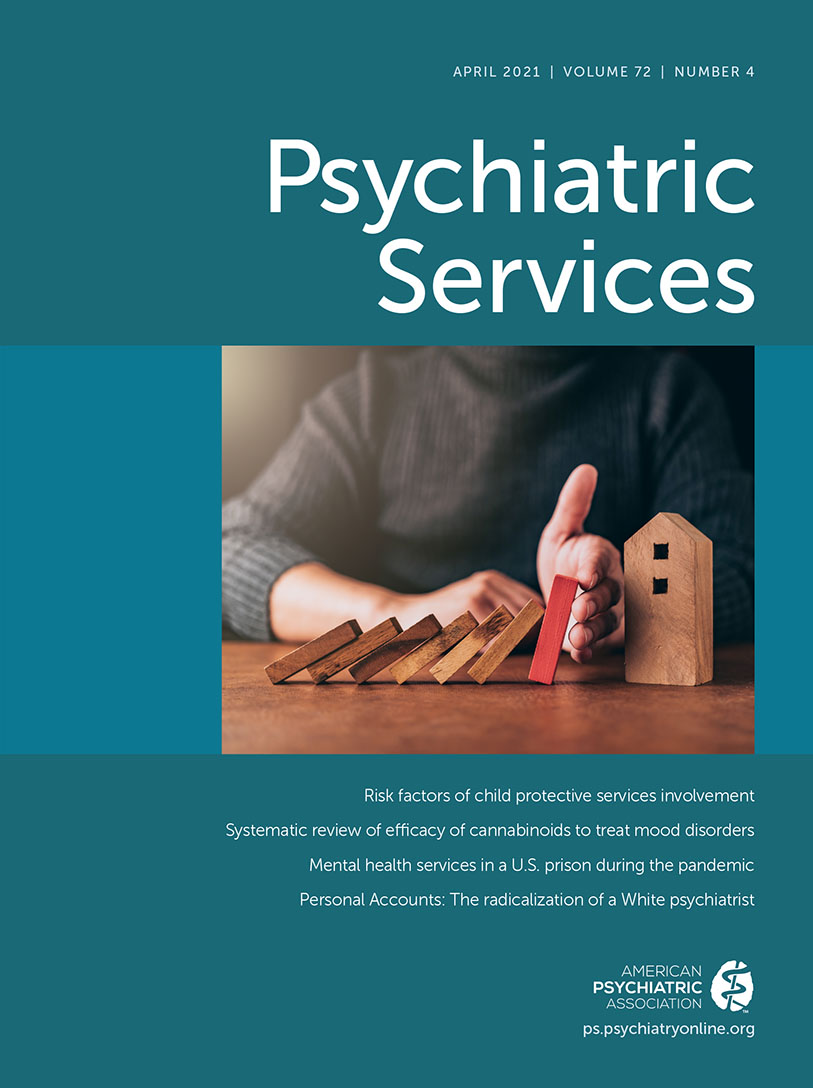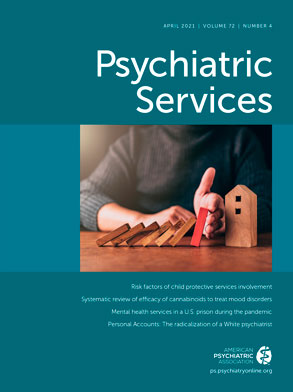Individuals with serious mental illness have more chronic medical conditions that increase their risk for contracting severe COVID-19 compared with individuals without serious mental illness and are more likely to be distinctly affected by the pandemic. For example, individuals with serious mental illness may face increased difficulties taking time off work and may experience health system–level barriers to testing and treatment (
1). Furthermore, social isolation due to physical distancing requirements may exacerbate their mental illness (
2).
A recent study has reported that comorbid health conditions such as obesity, hypertension, and diabetes are highly prevalent among patients hospitalized with COVID-19 (
3). According to guidance from the Centers for Disease Control and Prevention (CDC) as of October 2020 (
4), people with asthma, obesity, hypertension, bronchitis, heart conditions, diabetes, kidney disease, liver disease, and compromised immune systems (i.e., current smokers or individuals undergoing cancer treatment) are or might be at an increased risk for severe illness from COVID-19 compared with individuals without these conditions.
Using survey-weighted data from the 2015–2018 National Survey on Drug Use and Health, a nationally representative sample of noninstitutionalized nonhomeless respondents (N=226,600), we found that individuals with serious mental illness (N=9,700, weighted N=10.8 million) have higher prevalence of most of the health conditions associated with severe COVID-19 compared with individuals without serious mental illness (N=216,900, weighted N=260 million) (
Figure 1). Specifically, among individuals with serious mental illness, the rate of asthma was 19% (N=1,843); of bronchitis, 11% (N=1,067); of nicotine dependence, 21% (N=2,037); and of obesity, 46% (N=4,462). Statistical significance was designated a priori at p≤0.05; all differences in the rates of medical conditions were statistically significant in the nonstratified sample (see
online supplement). To address the greater risk for more severe COVID-19 among people age 65 or older, we stratified the estimates by age and found higher rates of all the CDC-identified conditions, except for cancer, among those ages ≥65 and having serious mental illness than among those ages ≥65 without serious mental illness.
Our findings suggest that significant health conditions are prevalent among individuals with serious mental illness, which may increase their risk for experiencing severe COVID-19. As states have declared emergencies because of COVID-19, many routine services previously available to patients with serious mental illness have been limited, refocused, or closed (
5). Ongoing efforts appear to be warranted to ensure that services remain available to individuals with serious mental illness during this pandemic.


